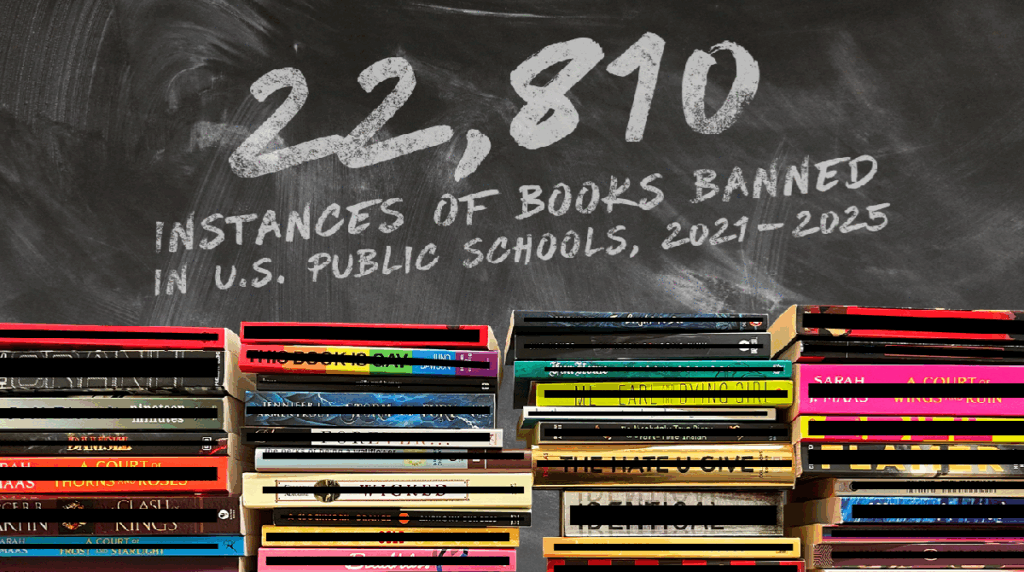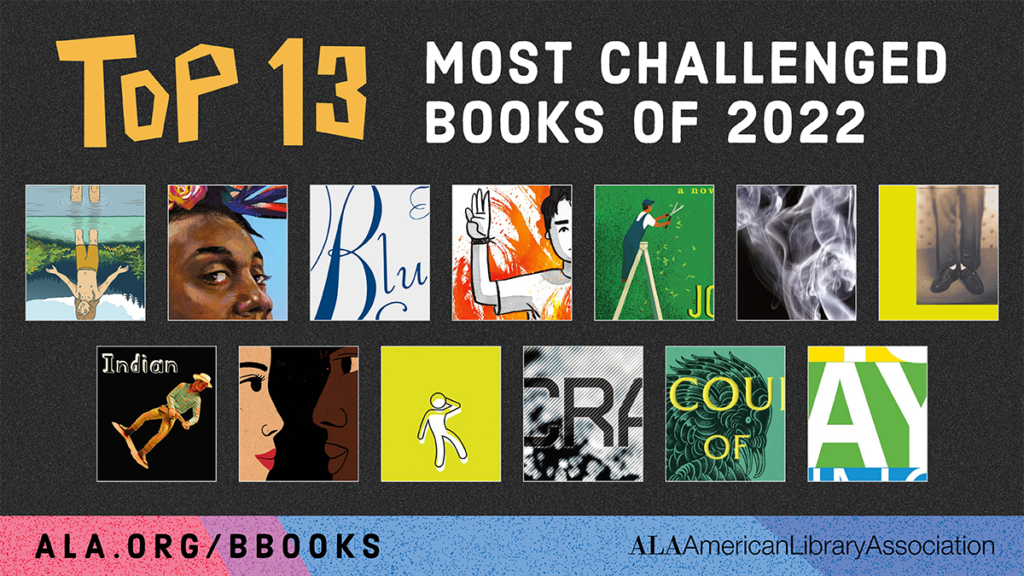This blog post is by Madison Markham, Program Coordinator, Freedom to Read with PEN America, a Unite Against Book Bans partner.
Book Bans Are Both Underreported and Routine in American Schools
In our fourth year of publishing Banned in the USA reports, PEN America outlines the status of book banning in American public schools and the alarming trends we’ve identified. Above all: Americans are increasingly desensitized to the phenomenon. As noted in our report, “Book challenges and bracing for parental criticism has become as routine as preparing a syllabus or checking books in and out of the library.” To say that this is alarming would be an understatement.
For the 2024-2025 school year, we documented 6,870 cases of school book bans, bringing our cumulative index to 22,810 school book bans since 2021. These are just the cases we’ve been able to identify. Book banning increasingly occurs in silence through unreported cases; though we take strenuous efforts to identify as many cases as possible, this still leaves our index as an undercount.
The Expanding Battlefield: Local Bans, State Laws, and Federal Influence
The censorship of books has shifted in terms of strategy. The local approach—namely through school board takeovers and mass challenges by well-funded astroturf advocacy groups–dates back to the onset of this crisis. The role of state officials and legislation in book banning, however, continues to rise, with the notable addition of state-mandated book ban laws in three states in 2024. And this year, we’ve observed the influence of federal level censorship, including numerous executive orders and a Supreme Court case, Mahmoud v. Taylor.
Dangerous Rhetoric and Ideology Drive Fear, Ignorance, and Advance Compliance
One of our topline observations is that the movement to ban books is filled with rhetoric that is hateful and will result in a level of ignorance within young people who are now sheltered from books describing the complexity of our society, under the guise of “protecting” them. This misleading rhetoric continues to be used by book banning organizations and individuals, some of whom express homophobic, white supremacist, and Christian nationalist ideology.
We’ve also observed a sharp increase in districts obeying in advance—those acting out of fear through overcompliance or removing books early on to appease censorious political figures. Where legislation applied, the overwhelming majority of removals came from pressure and not the law itself: 97% of these bans were caused by school districts’ fear of being out of compliance, regardless of whether the law was enjoined, hadn’t been passed yet, or didn’t call for the direct removal of books.
Resistance and Hope: Communities Fight Back
What brings us hope is the widespread opposition to book bans. In 80% of districts in our index, communities had mobilized against the bans. Even when bans are unable to be stopped, the boldness and bravery of resisting these bans–through grassroots activism or refusing to obey in advance–remains crucial in this moment. Every voice who speaks up against book bans brings us closer to stopping this movement and repairing the damage done to our nation’s schools.
Read PEN America’s full report, The Normalization of Book Banning (Oct. 1, 2025) and visit the Unite Against Book Bans Action Toolkit for ways to protect the freedom to read in your community.



